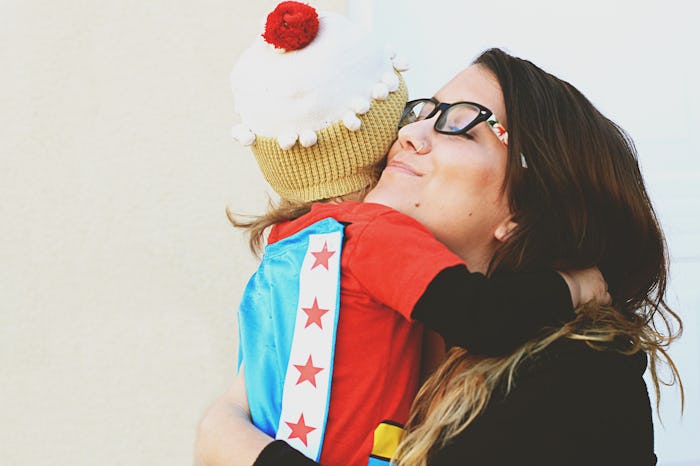Life
5 Clues You Are Coddling Your Toddler & Need To Let Them Live
Parents want to protect their children from harm, danger, and disappointment. They want them to become successful adults without experiencing the negative aspects of growing up. They want to shield them from embarrassment, conflict, failure, and exclusion. But how can you tell if you are protecting or actually coddling your toddler?
Psychologist Erik Fisher, author of The Art of Managing Everyday Conflict, told Cincinnati Family Magazine, “Coddling is when parents predict the failure of a child. It is a protective act.” The natural protection instinct a parent has toward a newborn can turn into a compulsion to safeguard them from anything perilous and all of life's letdowns. But, this actually hinders your child's future.
In her book You're Perfect ... and Other Lies Parents Tell: The Ugly Truth about Spoiling Your Kids, former legal prosecutor Loni Coombs wrote that coddled children "turn into adults who have more health issues, are more susceptible to drug and alcohol addictions, have more difficulty maintaining relationships and financial stability, and are more likely to run into trouble with the law." Coddling can protect your child from temporary dangers, but may set your child up for failure in the long term.
Worried you're holding on too tight to your little one? Or maybe not aware of it? The following are some clues you may be coddling your toddler.
1Your Toddler Has Separation Anxiety
Many toddlers have a hard time being away from Mom and Dad, but psychologist Erik Fisher stated to Metro Family Magazine that “children who are coddled have a harder time with separation anxiety.” It is important to allow yourself time away from your toddler, and just as important for your toddler to spend time away from you. A few hours each week at Grandma's house will help your child grow accustomed to being away from you when the time comes to start school.
If your toddler cries when you attempt to drop him off, and you immediately change your plans and whisk him home, he won't learn that even if you leave, you will come back. Most children cry for only a few minutes and move on to play, but coddled children may not have the experience or the self-coping mechanism to move past their fears.
2Your Toddler Won't Clean Up After Herself
Have you ever been to a play date that during "clean up time" one mom will come rushing in to clean up for her child? Children can learn to pick toys up off the ground and toss them into a toy box as early as 18 months. Learning to clean up teaches children the consequences of making a mess. You can always tell which children have been coddled, because they are the ones who flip the toy box over and then rush to Mommy when the Clean Up Song starts.
3Your Toddler Has A Meltdown With Every Bump And Bruise
Kids will fall, and sometimes they will get hurt. A baby learning to walk is bound to fall over, but how you react will teach him how to appropriately respond to the severity (or lack thereof) of his injury. If your toddler falls on his diapered bottom on to a carpeted floor and you react with as much horror as if he had run into the sharp corner of the kitchen cabinet, he will learn that even small injuries require a meltdown.
You may want to scoop him up and bathe him in a million kisses, but you will encourage appropriate coping skills by instead saying, "It's ok. You're ok. Go on and play."
4Your Toddler Is Scared Of Everything
You want to protect your toddler from being hurt or feeling anxious, but overprotecting your child against situations that may be a little scary can do more harm than good. Psychology Today reports that parents who coddle may have more comfortable children in the short run, but in the long run coddled children become more shy and have a harder time being social. Toddlers who are protected against activities they deem frightening may have a harder time coping with anxious situations as they grow.
5Your Toddler Sets The Rules
Do you cut outings short because she will only nap in her own bed? Do you buy her a toy every time you go to the store just so that you can get your shopping done? Does everyone in the house go silent at 7:30 p.m. (guests included) because it's her bedtime? Coddling is not only being overprotective, it is about being overindulgent, as well. Your toddler learns quickly how you react to her temperament and expect to always get her way.
